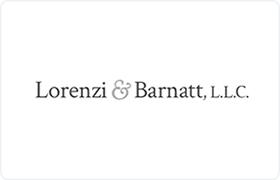Lake Charles Felony Lawyer, Louisiana
Sponsored Law Firm
-
 x
x

Click For More Info:
-
Lorenzi & Barnatt LLP
518 Pujo St Lake Charles, LA 70601» view mapCriminal Defense Law Our Clients Are Our First Priority
We take the time to earn your trust – and serve clients from all walks of life with integrity and commitment.
337-436-8401
Not enough matches for Lake Charles Felony lawyer.
Below are all Lake Charles Criminal lawyers.
David Green
✓ VERIFIED *Status is reviewed annually. For latest information visit hereCriminal, Family Law, Personal Injury
David Green is a graduate of McNeese State University and has a strong background in law enforcement and criminal law. While earning his undergraduat... (more)
Jamie B. Bice
Family Law, Criminal, Personal Injury, Accident & Injury
Status: In Good Standing *Status is reviewed annually. For latest information visit here
FREE CONSULTATION
CONTACTP. David Olney
Wills & Probate, Traffic, Collection, DUI-DWI
Status: In Good Standing *Status is reviewed annually. For latest information visit here
FREE CONSULTATION
CONTACTDaniel L. Lorenzi
Criminal, DUI-DWI, Felony, Estate
Status: In Good Standing *Status is reviewed annually. For latest information visit here Licensed: 16 Years
Thomas Lawrence Lorenzi
Criminal, White Collar Crime, Grand Jury Proceedings, Misdemeanor
Status: In Good Standing *Status is reviewed annually. For latest information visit here Licensed: 50 Years
Walter Marshall Sanchez
Internet, Family Law, White Collar Crime, DUI-DWI, Criminal
Status: In Good Standing *Status is reviewed annually. For latest information visit here
Anthony J. Hebert
Accident & Injury, Personal Injury, Car Accident, Criminal
Status: In Good Standing *Status is reviewed annually. For latest information visit here Licensed: 36 Years
FREE CONSULTATION
CONTACTRoger G. Burgess
Medical Malpractice, Criminal, Admiralty & Maritime, International Other, Litigation
Status: In Good Standing *Status is reviewed annually. For latest information visit here Licensed: 47 Years
Carla Sue Sigler
Criminal, Family Law, Wills, State Appellate Practice, Other
Status: In Good Standing *Status is reviewed annually. For latest information visit here Licensed: 25 Years
Bryan Forrest Gill
Personal Injury, Bankruptcy, Criminal, Government, Tax
 Daniel L. Lorenzi Lake Charles, LA
Daniel L. Lorenzi Lake Charles, LA Practice AreasExpertise
Practice AreasExpertise
